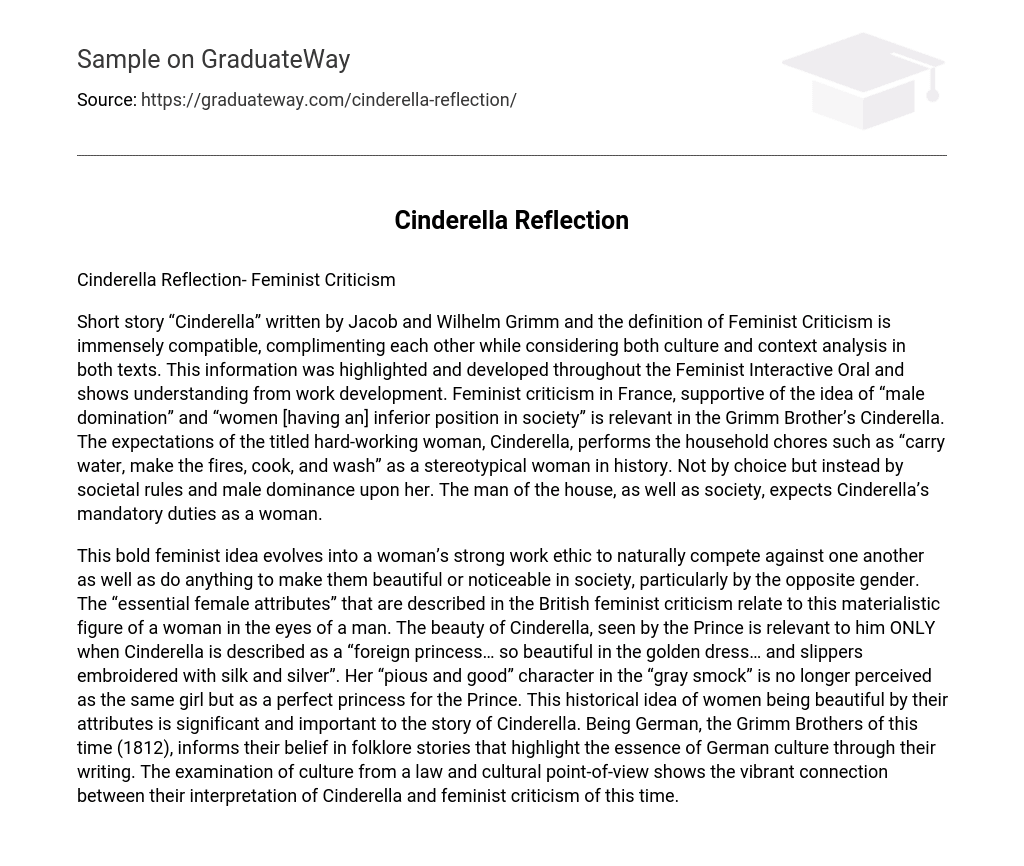Cinderella Reflection- Feminist Criticism
Short story “Cinderella” written by Jacob and Wilhelm Grimm and the definition of Feminist Criticism is immensely compatible, complimenting each other while considering both culture and context analysis in both texts. This information was highlighted and developed throughout the Feminist Interactive Oral and shows understanding from work development. Feminist criticism in France, supportive of the idea of “male domination” and “women [having an] inferior position in society” is relevant in the Grimm Brother’s Cinderella. The expectations of the titled hard-working woman, Cinderella, performs the household chores such as “carry water, make the fires, cook, and wash” as a stereotypical woman in history. Not by choice but instead by societal rules and male dominance upon her. The man of the house, as well as society, expects Cinderella’s mandatory duties as a woman.
This bold feminist idea evolves into a woman’s strong work ethic to naturally compete against one another as well as do anything to make them beautiful or noticeable in society, particularly by the opposite gender. The “essential female attributes” that are described in the British feminist criticism relate to this materialistic figure of a woman in the eyes of a man. The beauty of Cinderella, seen by the Prince is relevant to him ONLY when Cinderella is described as a “foreign princess… so beautiful in the golden dress… and slippers embroidered with silk and silver”. Her “pious and good” character in the “gray smock” is no longer perceived as the same girl but as a perfect princess for the Prince. This historical idea of women being beautiful by their attributes is significant and important to the story of Cinderella. Being German, the Grimm Brothers of this time (1812), informs their belief in folklore stories that highlight the essence of German culture through their writing. The examination of culture from a law and cultural point-of-view shows the vibrant connection between their interpretation of Cinderella and feminist criticism of this time.





